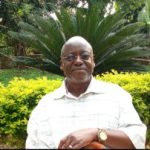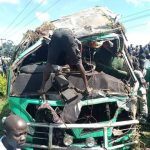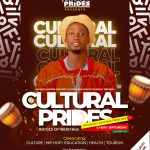IS THE NATIONAL RESISTANCE MOVEMENT GOVERNMENT WEAPONISING POVERTY AGAINST UGANDANS
By Oweyegha-Afunaduula
“In a country well governed, poverty is something to be ashamed of. In a country badly governed, wealth is something to be ashamed of” – Confucius.
In a video lecture by Dr Howard Nicholas, a Sri Lankan economist and social scientist, Senior Lecturer in Economics at the International Institute of Social Studies (ISS) of the Erasmus University of Rotterdam, cited by Samuel Phillips (2024), made this statement below about poverty in Africa:
“Africa, historically, sub-Saharan Africa has been fundamental to the global prosperity of the advanced countries, and Africa has a role to play. It has a role as a raw material producer. We will not allow sub-Saharan Africa to escape that. We do everything to keep Sub-Saharan Africa where it is also impoverished. It’s absolutely vital for the prosperity of everyone else. So, let’s get clear about that. Okay. And this means all the economic structures, all the global institutions and the economics we teach, everyone is all designed to keep Africa exactly where it is.
Many decades after the colonialists granted African countries political independence, we remain mired in poverty. Poverty is the reason we care without giving. It is the reason we are pissed but act like we are not; it also explains why we behave like we have forgotten the pains we remember (Tete, 2020). Poverty is a convoluted problem which the World Bank defines as ‘living on less than $1.90 a day, or about $700 per year’, which puts one tenth of the world’s population below the global poverty line. Poverty is not entirely about surveying family income, income disparity, or the need for economic advancement. Poverty defines and alters everything about an individual’s reality (Tete, 2020).
Kefason (2019) argued that Poverty of the people is now a political weapon for politicians, and that because poverty is a weapon, most politicians would not want to be disarmed of this weapon. Therefore, if a country is to be great again, the people must take the weapon from the politicians by giving power back to the people. This is what makes the clarion call “People Power” powerful. It explains why those in power whose tool of control of the poor is poverty do everything possible to arm themselves against the poor and try to isolate people-sensitive people from the people.
Forget about NRM government’s use of guns and tear gas to weaponize itself against the people, mainly the poor. Any government in Africa has many other ways through which to weaponise itself against the people. Poverty is the most formidable and most enduring weapon. However, the main or major way the NRM government has discovered to be most useful in weaponizing poverty against the people is through corruption of everything conceivable.
Embezzlement is the most depriving form of corruption. That is why in Uganda the President of Uganda is protecting the corruption industry against Ugandans. Every day if you listen to the news in Uganda or sample discussions in social media groups, all you will be hearing is the millions or billions of shillings that is missing in one local government, ministry, agency, department, like Bank of Uganda or even shoddy deals in Parliament between the legislators and the Executive. The Inspector General of Government (IGG), Bettie Kamya Turomwe, has failed to fight corruption in government because the President personally protects corruption against Ugandans. When the IGG wanted to use the lifestyle audit method, which worked so well in Singapore to eliminate corruption in the country, the President discouraged her, arguing it would discourage the corrupt from investing their loot in the country adding “Afterall they are stealing government money”!
According to the IGG the country loses UGX 10 trillion every year to corruption. The overall result is that the absolute majority of Ugandans are not enjoying economic well-being.
When economic well-being becomes a threat to a dictatorship, poverty turns into a tool for oppression (Mansoureh Galestan, 2025). In Iran, a recent revelation by Masoud Roghani Zanjani, former head of the Iranian regime’s Planning and Budget Organization, has exposed a chilling strategy at the core of Iran’s ruling theocracy. According to an interview with Abdi Media on March 9, 2025, Roghani Zanjani disclosed that the regime’s Supreme Leader, Ali Khamenei, once told former President Akbar Hashemi Rafsanjani, “If people become prosperous, they will abandon religion.”
The statement is not a mere slip of the tongue; it is the key to understanding the Iranian regime’s systematic strategy of using economic hardship as a means of control. It sheds light on why, despite vast natural resources, Iran’s economy remains in a perpetual state of crisis. Under Khamenei’s rule, economic suffering is not an accident – it is a policy (Mansoureh Galestan, 2025).
I am finding it difficult to delink President Tibuhaburwa Museveni’s strategy of using poverty as a tool of oppression from what obtains in Iran. The right to a decent standard of living – including access to food, healthcare, and housing—is enshrined in Article 25 of the Universal Declaration of Human Rights. Yet, the NRM regime in Uganda, like the regime in Iran, has deliberate economic, health, social and land policies that contradict these principles, keeping millions in a state of deprivation.
The truth remains that the identity of Africa in general and Uganda in particular is not that of poverty, backwardness, wars, chaos and the other stuff you hear in the news. The identity of Africa is that of great riches, ancient wisdom, mental and spiritual power (Samuel Phillips, 2024). Africa is portrayed as poor, not because she is poor, but because those who benefit from the exploitation of her human and natural resources need a weapon or a falsehood that constantly reminds the African that all he needs is food, clothes and a place to hide his head from the elements (Samuel Phillips, 2024).
The weapon or falsehood is poverty. In Uganda President Tibuhaburwa Museveni has made poverty an everyday song. A year before presidential elections, he uses it as a political weapon against his opponents, reminding the vulnerable that he is solving their poverty situation through Myooga, Parish Development Models and Operation Wealth Creation, yet he is constantly, persistently and perennially using poverty against them, sinking them further and further in the abyss of poverty through sustaining corruption and entrapping them more and more in underdevelopment and the debt trap for power, wealth, domination and continuous exploitation.
At no time in the history of Uganda has a government borrowed from the international and domestic markets, ostensibly to fight poverty and develop Ugandans, as has the National Resistance Movement (NRM) government. The external debt now stands at nearly 100 trillion shillings yet the borrowing virus is becoming more and more virulent. As it borrows incessantly, with no real evidence on the ground that poverty is being conquered and that Uganda and its people are being developed, the President of Uganda continues to try and convince all that Uganda’s economy is now a middle-income economy. That is precisely what he was doing in his national address on 5th June 2025.
There is no doubt that by just looking at the wealth of Busoga and Karamoja, Uganda is extremely wealthy. Yet the NRM government continues to falsely cast Karamoja and Busoga as the poorest subregions of Uganda. The constant, persistent questions are: Why does the wealth of Uganda continue not to be reflected in the lives of Ugandans? Why do we continue to be trapped in a deadly debt trap that shows no promise of loosening itself around us?
Some thinkers in Africa and elsewhere continue to argue that we are poor because we are poor and because we are poor, we are poor. Many continue to blame the colonialists for not allowing us to have leaders who can lead. Instead, they argue, we have authoritarian rulers pretending to be leading us out of poverty, yet they are benefiting from our poverty. Colonial and neocolonial strategies of exploitation and domination depend heavily on underdevelopment, creating a dual economy where a small elite benefited and still benefit from Western investments while the majority languished and continue to languish in poverty (e.g., Tochukwu Agu, 2024).
Current poverty in Uganda is linked to past poverty mediated by the colonialists while the elite acted as their agents. In recent years, Chinese finance has slowly but surely replaced Western capital in sinking us deeper in poverty and dependency. There is increasing threat that we shall bequeath our wealth and assets to China after failure to repay our debts to her.
Let me emphasise. Today the politico-military elite in power in Uganda are busy preaching fighting poverty through such strategies as Myooga, Operation Wealth Creation and Parish Development Model, yet they are entrenching our colonial reliance on extraction of natural resources, thereby undermining all their efforts at fighting poverty. They are extracting fish, gold, rare earth minerals, using foreigners such as Chinese and Indians, but the proceeds are not clearly reflected in the national budget and the natural owners of the resources are not benefitting at all.
It is also important to examine the way the regime in power recruits for its security organs. For a long time, President Tibuhaburwa Museveni has told young people that he has jobs in his security organs. Springer-Gould (2020) indicated that we could examine the weaponisation of poverty by looking at the way government recruits its military personnel, police personnel, paramilitary officers, prison warders and intelligence officers from schools of low-income communities where quality of education is low.
The policy of erecting seed schools in Uganda may be more for a steady supply of such people for security organs than affording every Ugandan opportunity to get education. As Mwenda once told us, there is nothing that President Tibuhaburwa Museveni does without political intent. Weaponisation of poverty is going on in Uganda along many dimensions, and the education dimension is a clear one, linked to militarisation of the country and its economy.
With this temporary mindset instilled within the military industry, a culture of “disposable” labor emerges and workers run the risk of being dehumanised or solely sought after for their physical capabilities (e.g., Springer-Gould, 2020). Recently so many top soldiers in Uganda were compelled to retire before their retirement time was due. Although the recent enactment of the UPDF Act 2025 assures them of huge retirement benefits, dehumanisation cannot be ruled out.
Therefore, the policies and practices are contributing to the entrenchment of income poverty among the indigenous groups of Ugandans. Effectively, the rulers are weaponising poverty in general and the economic disparities in particular to suppress resistance to bad governance and exploitation and, in essence, are maintaining, magnifying and transplanting the colonial legacy into the future for political gain and continued control of the indigenes of the country.
Understanding these relationships is critical to developing effective strategies for poverty alleviation that address the historical context of inequality. To combat poverty effectively, Uganda must implement policies that prioritise equitable resource distribution, revamp educational frameworks to enhance critical thinking and local knowledge, and eradicate the corruption that undermines national development. Only by confronting the colonial legacy can Uganda hope to break free from the cycle of poverty and achieve lasting economic empowerment (see also, Tochukwu Agu, 2024).
In summary, poverty is a vice. However, in Uganda in particular and the world in general power (financial and political) is using it against those who suffer the pain inflicted by the vice and who are frequently lied to that they are being developed. Garikai Bonga (2023) has recently investigated the weaponisation of poverty in his pursuit of understanding the link between poverty and politics.
If we are to have any form of self-worth which is becoming a luxury in Africa in general and Uganda in particular, then the elimination of extreme poverty must be the bedrock of any comprehensive development strategy, irrespective of the stakeholders developing the blueprint. Individually and collectively, the only way to be immune to the “weaponised poverty” is to be kitted in education, discipline and skills (Tete, 2020). However, the type and quality of education is critical. We shall benefit more if we embrace the new and different types of knowledge production, namely: interdisciplinarity, crossdisciplinarity, transdisciplinarity and extradisciplinarity (or non-disciplinarity).
We should organise, not agonise, against the use of economic hardship as a weapon to control the citizens (e.g., Mansoureh Galestan, 2025). Besides weaponised poverty is enslavement and robbery of our future by the elite in power. We should not be deceived anymore that anyone is working hard to pull us out of poverty. Enslavement and weaponised poverty go hand in hand. An enslaved people suffering from weaponised poverty belongs to the past, not present. Such people is the human waste of the 21st Century.
For God and My Country
Further Reading
Bonga, Wellington Garikai, Investigating Weaponization of Poverty by Political Organizations: A Case for Zimbabwe (May 31, 2023). Available at SSRN: https://ssrn.com/abstract=4645135 or http://dx.doi.org/10.2139/ssrn.4645135
Emmanuel Tochukwu Agu. Poverty in Nigeria: A weaponized tool by the colonial masters for their Selfish Interest. ScienceOpen Preprints. 2024. DOI: 10.14293/PR2199.001156.v1
Etete, Ken (2020). Weaponisation of Poverty. Ken Etete, December 14 2020, https://kenetete.com/2020/12/14/weaponization-of-poverty/ Visited on 06 June 2025 at 11:13 am EAT.
Kefason, Steven (2019). Weaponisation of Poverty. Sahara Reporters, November 22 2019 https://saharareporters.com/2019/11/22/weaponisation-poverty-steven-kefason Visited on 06 June 2025 at 12:14 pm EAT.
This post was created with our nice and easy submission form. Create your post!





